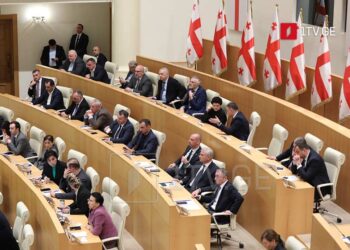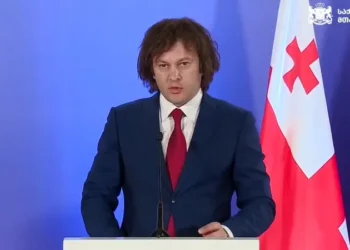Amid the recent decision by the Russian leadership to lift visa requirements and the flight ban for Georgian citizens, the relations between the two countries has been coming under special focus, seeing commentaries and analyses offered on what this development could actually mean. Critical for our analysis remains geography as a driving component in Moscow’s thinking toward the South Caucasus.
For Russia, the region constitutes a part of the so-called “near beyond borders”—blizhneye zarubezhie. The concept is a peculiarly Russian perception of the immediate neighborhood, which shows both Moscow’s acknowledgment of a certain distance (independence) of the region, but at the same time a close historical attachment to it. This dichotomy has often manifested itself in Russia’s ties with the South Caucasus’ three countries, Armenia, Azerbaijan, and Georgia, complicating our understanding of what the Russian ambitions truly are in the region.
The South Caucasus is also destined to fall into Russia’s geopolitical interests due to the geographic proximity of the imperial center and the colony. Technically, the South Caucasus was not an imperial possession in the Western sense of the word, but the history of the 19th and 20th centuries shows how increasingly distorted the relations between the three South Caucasus states and the imperial center became.
Many traits of Russian behavior in the South Caucasus indicated that the region was often regarded by Russian imperial or Soviet leaders as a colonial backwater. Again, geography might be a key here. Unlike the countries in the West which built their colonial empires overseas, Russia constructed the empire around its borders. This made it easier for Russia to invade, establish control, and a long-term rule. In comparison, the European empires had to wage military campaign thousands of kilometers away from the metropolis.
It is also true that Russian imperialism was different in the way that it did not operate far beyond the imperial borders. Again, geography is a key here. For the British and the French, colonies meant territories which were overseas. Those far-flung territories were and perhaps still are dear to London and Paris, but this geographic distance helped the elites of the two empires to accept relatively easily the end of their imperial enterprises.
Moreover, it is this geographic distance which eventually made a difference when the age of empires ended, and colonies had to be freed. Security-wise, while the Western empires were shielded by enormous distance, Russia was not. This perpetually invited Russian military measures, and caused fears of potential discontent turning into a revolt. This can explain a particularly high pace of militarization of Russian foreign policy in the South Caucasus since 1990s.
Russia had to be active in its neighborhood. It had to act to maintain influence at least to secure its unstable borders. Total detachment from the space could potentially result in troubles for internal Russia. Unlike the European empires, Russia has not been shielded by protective oceans. Gradually, the measures to stop potential instability evolved into the tools for exerting geopolitical control over the region. Then Moscow itself added to the insecurity in the region by providing support for the separatist regions. In a way, geography is pulling Russia back to the South Caucasus.
This poses an important question: is the problem between Russia and its neighborhood solely rooted in the fact that Russia’s political class is obsessed with imperial grandeur? The problem might actually much bigger than that. Russia is so big and populous in comparison with its neighbors (except for China) that the balance of power is perennially tilted in favor of Moscow. Ukraine’s successful defense is rather an exception than a norm.
This unfavorable geopolitical reality for Russia’s neighbors could lead to yet another conclusion, that even if Russia becomes a fully liberal country within its present borders, it will still likely pursue dominance in its neighborhood. This realist perspective is indeed helpful, as it minimizes unnecessary expectations that a truly democratic Russia will possess a geopolitically different mindset. A liberal Russia will at least try to pursue a liberal imperial project through which it would dominate its neighborhood economically and perhaps even create a certain order of exclusion – a development which in the end is hardly compatible with the true liberal traditions in world politics.
Geography is thus a curse for Russia, but it is also a driving force behind its imperial project. Russia’s size and politically/militarily relatively weak neighborhood will remain a dilemma which will easily invite Russian leaders to exert pressure on its smaller neighbors unless the latter are not backed militarily and economically by other big players.
Analysis by Emil Avdaliani
Emil Avdaliani is a professor at European University and the Director of Middle East Studies at the Georgian think-tank, Geocase.














